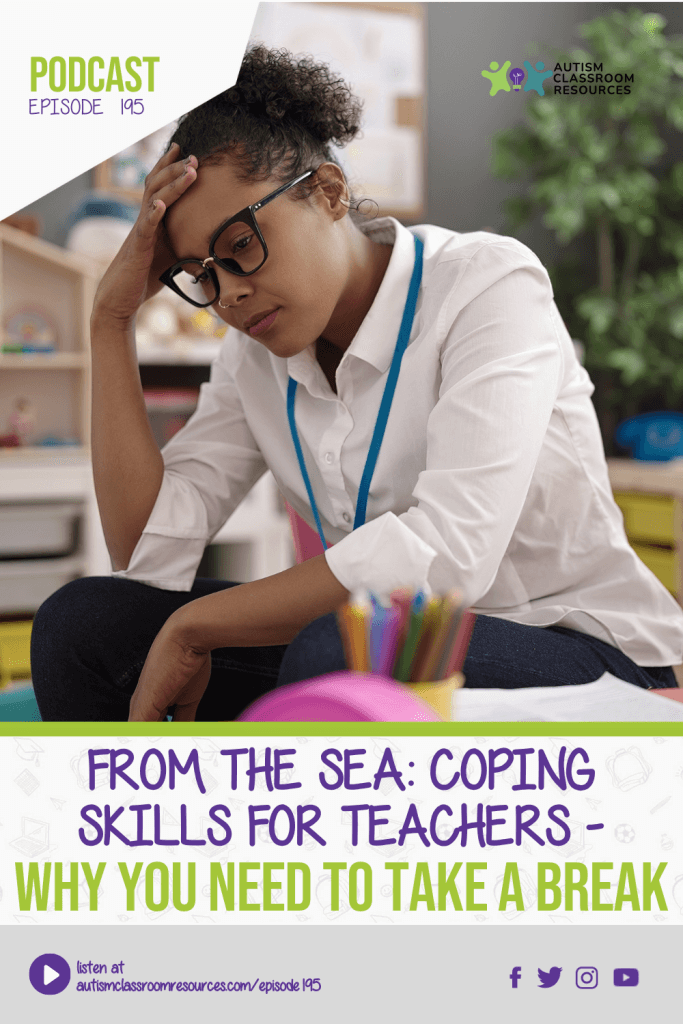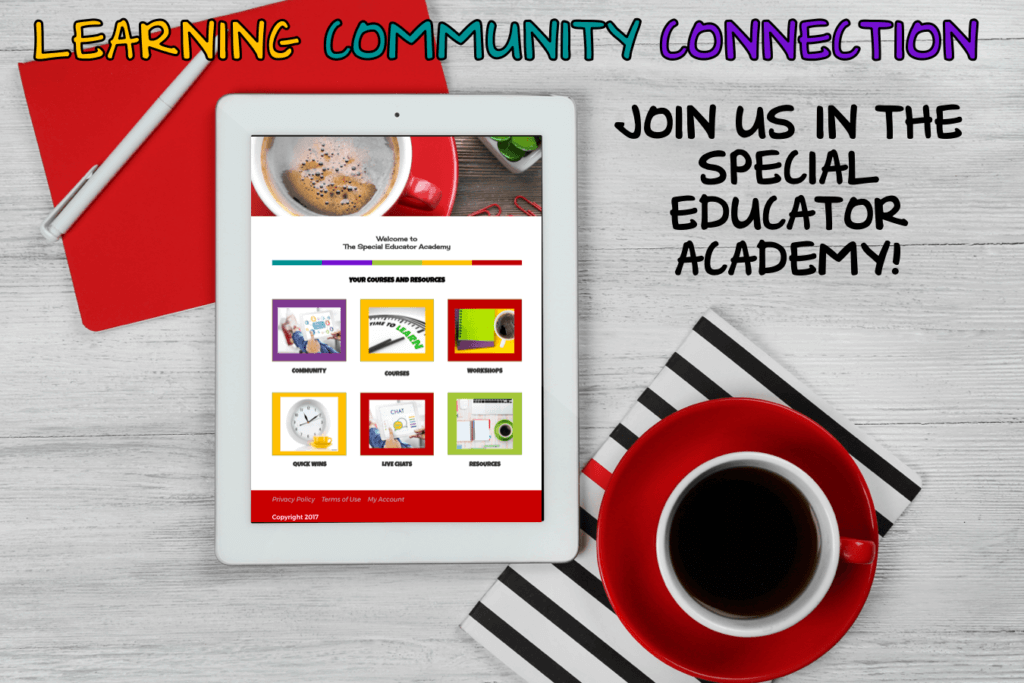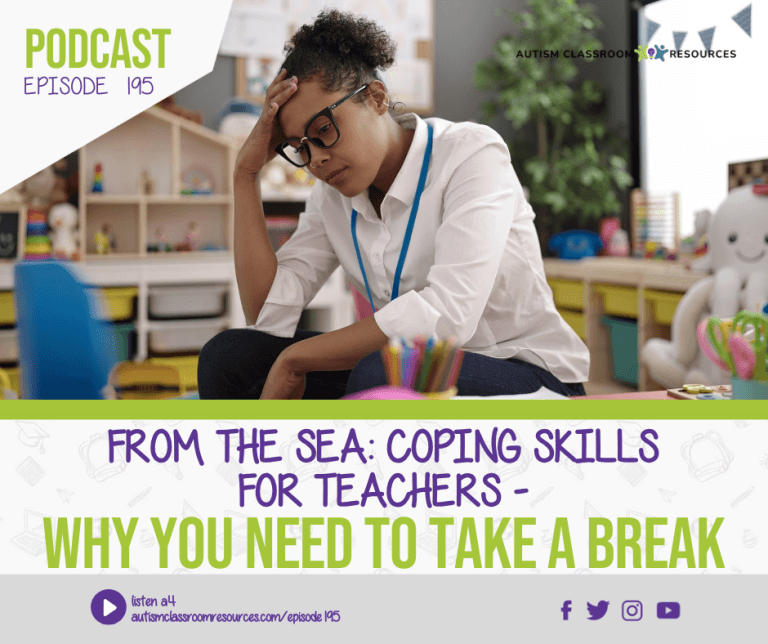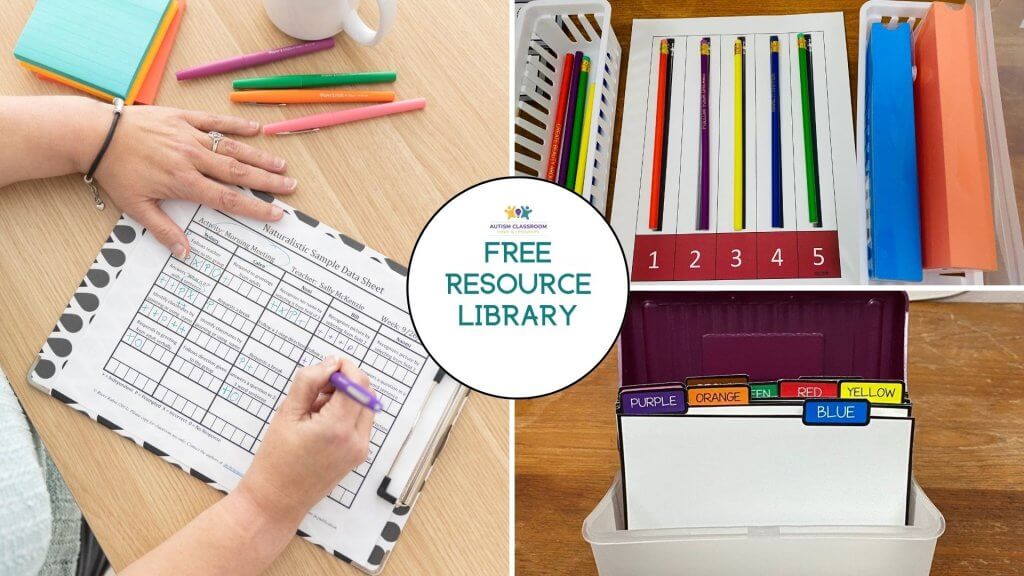Welcome to the Autism Classroom Resources Podcast, the podcast for special educators who are looking for personal and professional development.
Christine Reeve: I’m your host, Dr. Christine Reeve. For more than 20 years, I’ve worn lots of hats in special education but my real love is helping special educators like you. This podcast will give you tips and ways to implement research based practices in a practical way in your classroom, to make your job easier and more effective.
Welcome back to the Autism Classroom Resources Podcast. I’m Chris Reeve. And I’m super excited that you’re here. And I hope if you’re listening to this when it comes out, you are having the opportunity to get some rest and coming up on winter break, if not already there.
Today, I have a special episode for you from the Special Educator Academy podcast. It is on cast that we had for three years as a private podcast, and we don’t have new episodes coming out but it’s available to everybody in the academy.
And one of our threads in the academy is always special educator self care. Because I feel very strongly that part of my job needs to be to provide the support to you that sometimes can be a little lacking in our world of special ed. This is not an easy job.
This is not an easy job to maintain your enthusiasm about all the time. And because of that, one of the things that I’ve also found about many special educators is that we tend to be the people who do everything for everyone else. And not as much for ourselves. We also tend to always be thinking about our students. And let’s face it, their our kids, even if they’re adults. And that means that sometimes we’re not very good at taking a break.
So this episode is all about why you need to be taking a break during this winter break, because it will make you a better teacher. And I think that’s one of the things that has become a theme for me this year, is really looking at the fact that we need teachers to know that they need to put their oxygen mask on first.
They need to make sure that they are taking care of themselves, that you are taking care of yourself. Because even if it means your classroom isn’t everything you want it to be, you being able to continue to run your classroom has to take precedence. And you can’t do that if you’re burning yourself out by working constantly. So I’m going to talk in this episode about a lot of different reasons why a break is important.
And I would love to hear your thoughts about it. So feel free to drop me in message in Instagram and my DMs @autismclassroomresources. I would love to chat with you there. And if this is something that is useful for you, I would love for you to go to Apple podcasts and leave a review of what you think about the podcast, I always love to hear people’s feedback, so that I can give you what you need to be able to do your best job. So with that, let’s get started with our episode from the Academy.
Hi, all this is Chris, I just wanted to let you know, before we get on with our Monday Morning Reflections podcast that this is a replay of a very early episode, before we were able to push out the episodes to your devices. It’s also one that didn’t have a transcript. So bringing some of them back I’ve selected them specifically because I think they are very relevant for this time and the things that I think are worth hearing again. So I hope that you enjoy it and I look forward to hearing what you have to say.
Hello, and welcome back to the Monday Morning Reflections podcast. I hope that you have had a good week or a good weekend. And today I want to talk about five reasons why you should be taking a break this summer.
I know that it is very hard to take a break whether you are listening to this in June when it’s recorded, or whether you are listening to this during December right before winter break. Regardless of the time that you have off, I think it’s really important to remember how taking a break actually makes you a better educator rather than behind educator which is what I think we all kind of think. So that’s what I’m going to talk about today. And I think you should do it without feeling guilty.
So there’s five reasons why you shouldn’t feel guilty that you are taking a break. One is because taking a break means that you are making time for what’s really important. Your job, whether you think of it as your vocation, your career, or just your job is important, what you do is definitely important. But you need to have other things in your life that are as important or more important. For me, and many of us, family is more important. Married or single, parent or not, we all have loved ones who deserve 100% of our attention, even when they know how much our work means for the students and their families. They still need us to make time for them and to be present in the moment.
And in the end, it’s those everyday thoughts that you spent with your parents when they were older, that you are going to miss later on. They’re not the big things so much as the I liked having coffee with her on Saturday morning. Those are the things that you’re going to remember from a friendship, from a family relationship, regardless of what it is. So make sure that you’re making time for what’s really important, but also that you are creating things that are as important or more important than your job. That you’re not so wrapped up in your job, that if something were to go wrong there, everything is bad.
Number two, taking a break recharges your batteries. And I know that that is a real cliche. But I also know that it’s true. If you’re going to keep going at the speed that you go, I know from our community, in your classrooms, then your batteries are eventually going to give out.
And the longer term, this is kind of the personal version of the advice I give about scheduling classrooms. When I talk about scheduling classrooms, and writing zoning plans, I always make a big point about the fact that everyone needs to take a break every day. Everyone needs to have a break in their schedule, because otherwise, you take the break but because it wasn’t planned, you’re still standing there with the kids, and they think that you’re attending to them but your brain is not.
The same as true with breaks from school. You have to take that break in order to make sure that in the long term, you weren’t going to be there and present for your job as well.
Another reason number three, is perspective. It’s really easy to get caught up in the day to day activity of your classroom, and completely lose your perspective on the big picture. It keeps you from seeing the progress that your students have made, how far your classroom has come. And you know, we remember the tantrum that happened this afternoon but we forget that we used to have three of those every day and now maybe we have one a week.
We’re getting frustrated, because he’s only using two word utterances. But we forget that when he started, he rarely used one word. So taking a break, let you step away and get a bigger view. To get perspective. It gives you the energy to continue to tackle the challenging behaviors, and ignore the tantrums so that you can manage them. And it reminds you of why you do this and how important it is. And that is no small thing. That is a really important component.
Number four, taking a break actually promotes creativity. You need creativity, not for your art time, but you need creativity, because that’s what allows you to solve problems well. And so you know, when you’re always trying to remember something that you really need to remember, the more that you try, the harder it is. So when you forget what you wanted to say to somebody, the more that you try to think of it, the less likely it is that you’ll remember, but in the middle of the next conversation, it’ll come back to you.
Creativity is very similar. We know that teaching is a science and we know a lot about what works and what doesn’t work. But a huge part of your actual job is figuring out how to take that scientific information and identify the individual needs of your students, and then figure out how to put them together and that takes creativity. Getting away and leaving it behind gives your mind time to recharge and reset.
Some of my best ideas, some of my most creative ideas or creative problem solving strategies have come when my mind is disconnected from work. When I’m driving down the highway, I have a very hard time turning my brain off. And my sister always laughs at me because apparently my father was the same way. And she’ll say it’s just always going, but it’s only when I get in a car and don’t have anything to do and I have to drive it that my brain is free to wander, and it’s hard for me to remember that I have to do that.
And I have a tendency to look at things like going to the theater as I don’t want to go, I have so much work to do. But I know in the end, my work will actually be better if I go. And I always remember that when I go, and afterwards when my brain is kind of refreshed. So it really helps to walk away from things and get that perspective, but also just to give your brain some downtime to really do its work.
And finally, number five is that taking a break prevents burnout. We know how high the burnout rate is in education in general, and how much higher it is in special education. And taking a break means extending the time that you can do your job effectively. So when you’re feeling guilty, and you’re feeling like Oh, but I have so much work to do. And that’s what I should be focusing on, you need to make sure that you remember that you are extending the life of your being able to do this job by taking the break and giving yourself that leeway, because you’re not going to burn out as fast and you’re not going to have to leave and find a different career.
So if you have to have work that you have to do over the summer, which we all know we want to get it done, then set aside time when you’re planning to take time for just you and your family, put the work away where you can’t see it, dedicate yourself to being in the moment with them.
Then schedule a day, maybe you have one day a week over the summer that you work, or maybe you say I’m going to take all of the month of June off, and I will start working again in July or things like that. That way, you know, it really helps if you schedule at the time that you’re going to work and give yourself a deadline. Because the amount of work that you have will always expand to meet the amount of time that you have. So if you have a deadline, you will work more efficiently and more effectively.
So I would love to hear how you are taking a break and what kinds of things you’ve done for yourself either this week, this weekend, this summer that are giving you that perspective, that brain break, that time off to really rejuvenate. So I’d love for you to share that in the community. And I’ll put the link to the community thread in the comments and in the show notes, and hopefully you’re enjoying your break. I hope to see you again next week.
Thanks so much for listening to today’s episode of the Autism Classroom Resources podcast. For even more support, you can access free materials, webinars and Video Tips inside my free resource library. Sign up at autismclassroomresources.com/free. That’s F-R-E-E or click the link in the show notes to join the free library today. I’ll catch you again next week.
